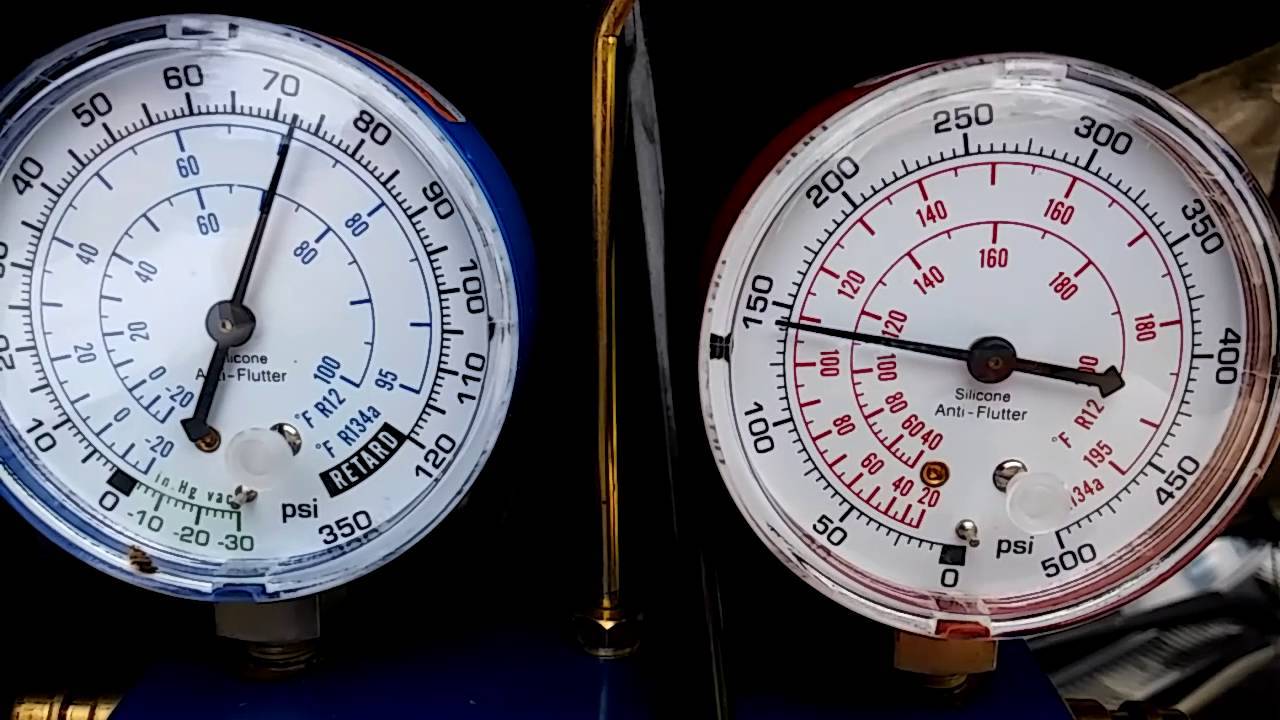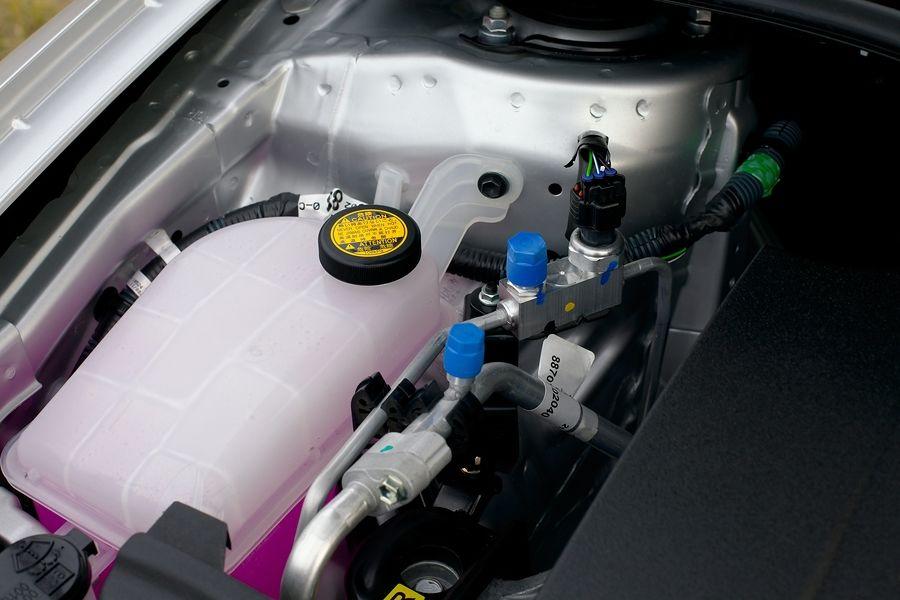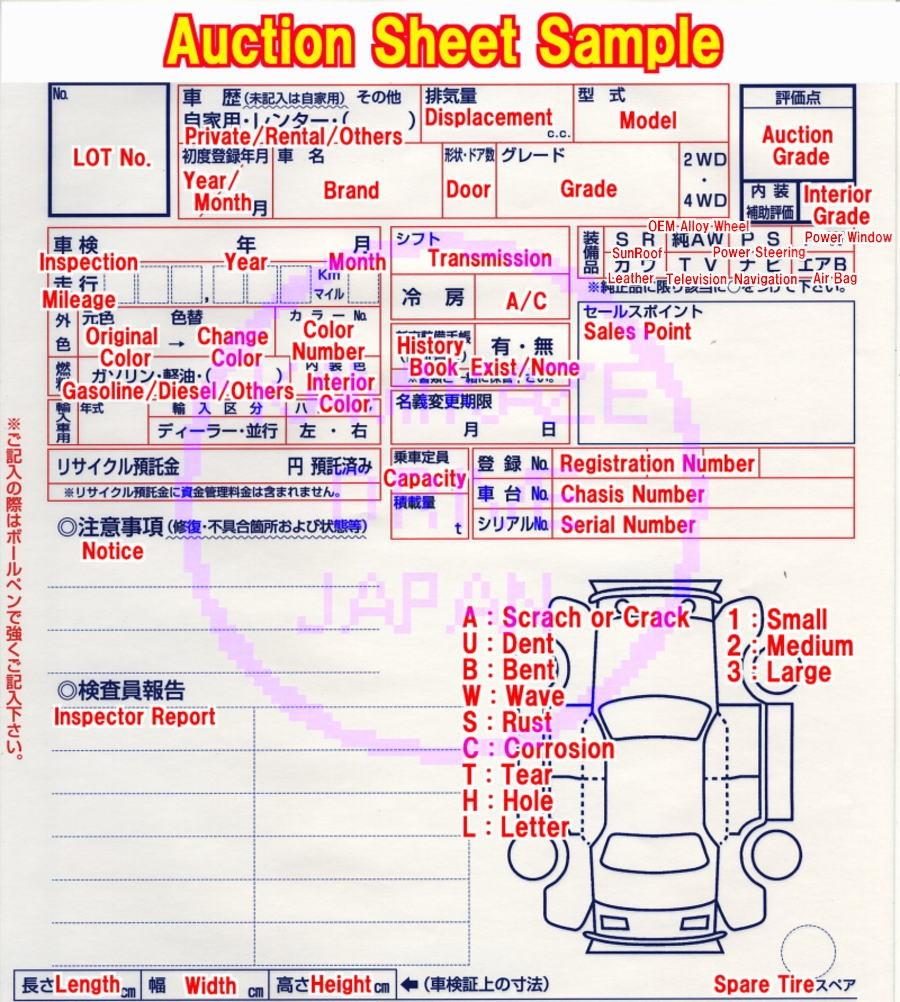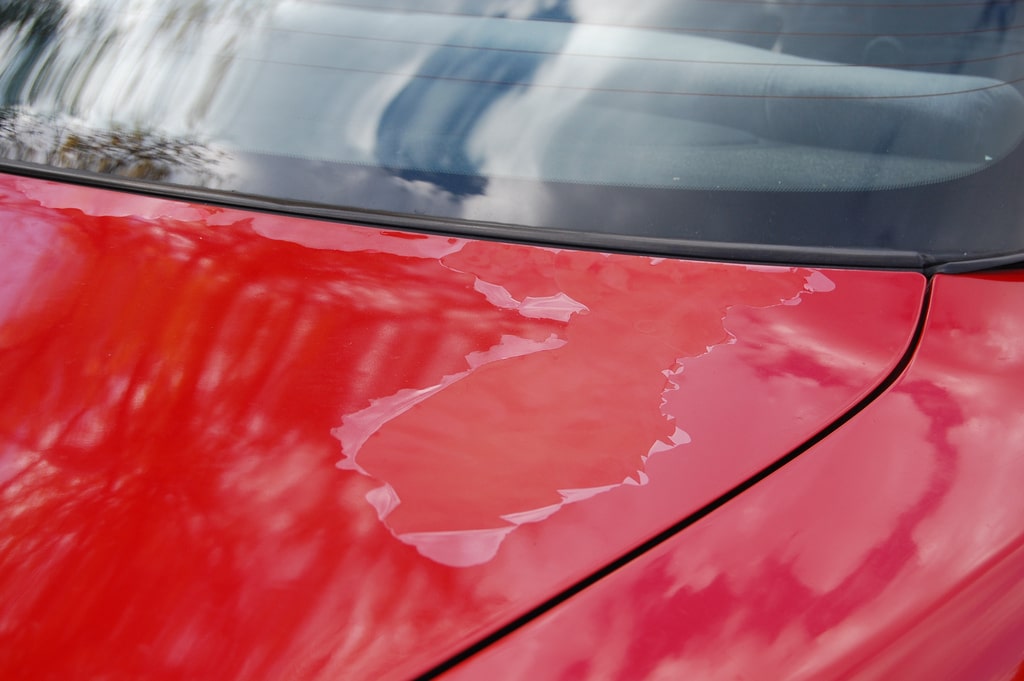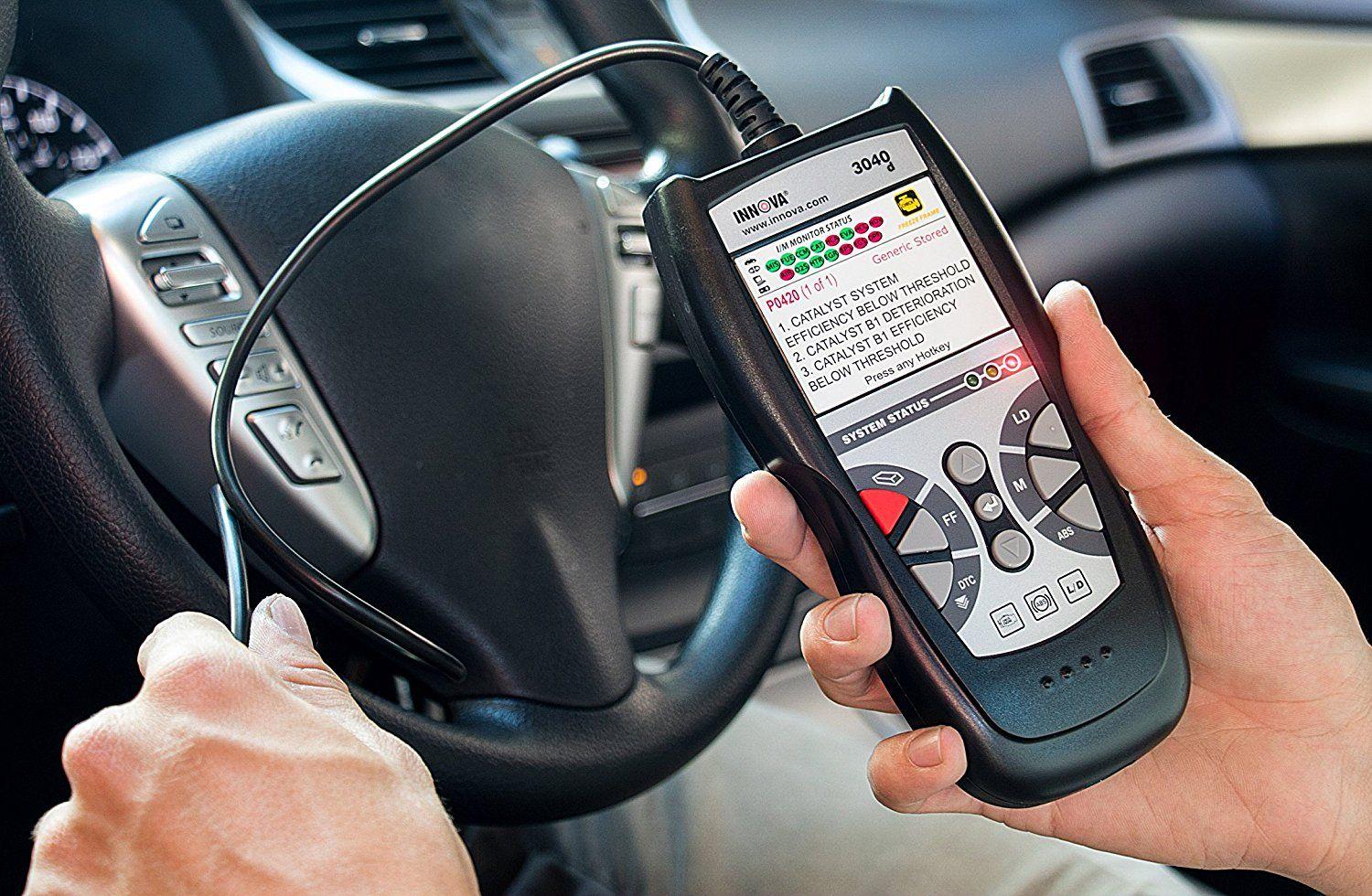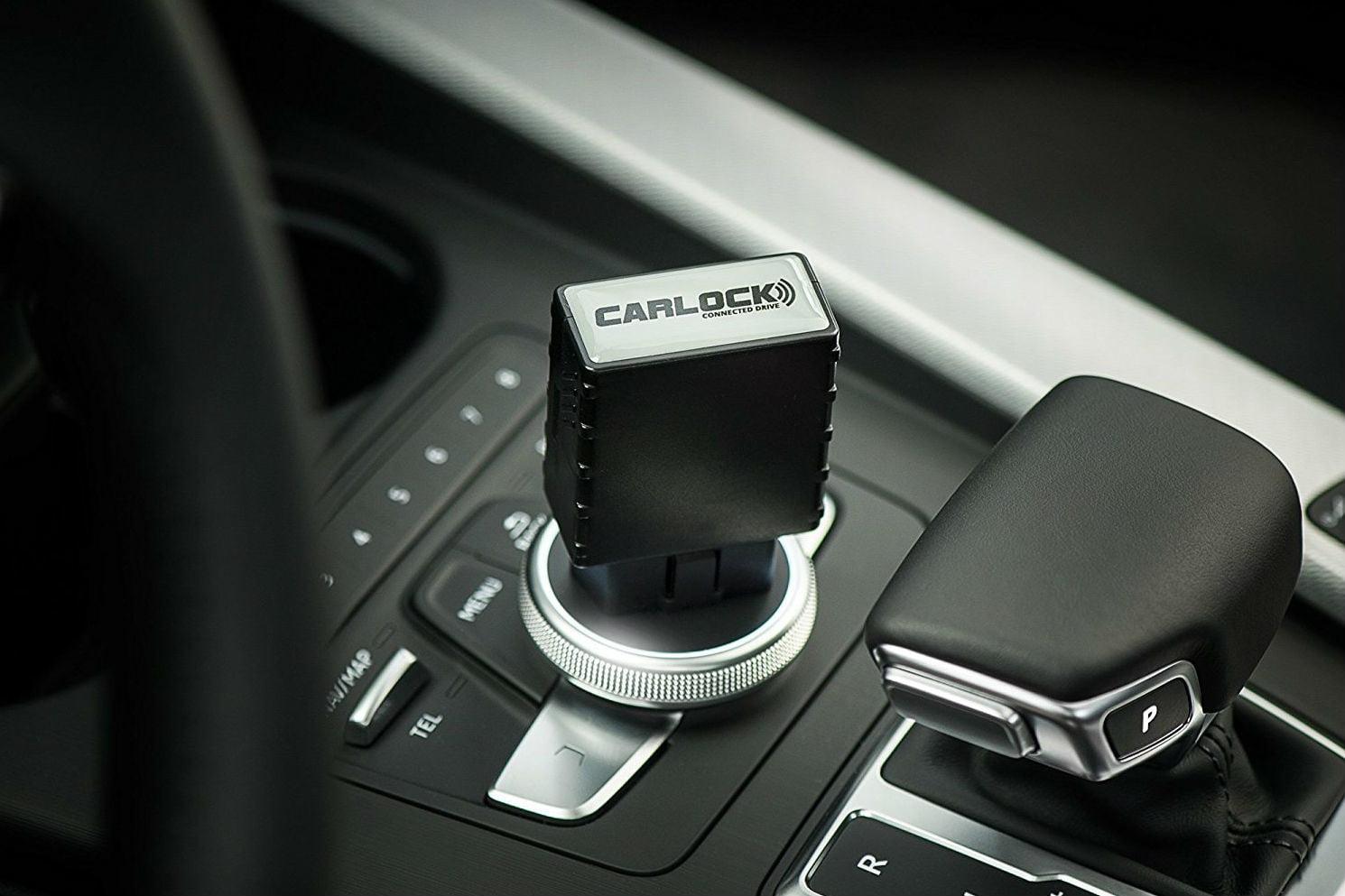8 Reasons Your Car Is Making Grinding Noise When Braking!
Sometimes, your car may suddenly make a grinding noise when braking. It’s a warning sign telling you that there’s something wrong either with the brakes or the rotors. Many car owners like to ignore such sounds for fear of an extensive repair.
Well, you shouldn’t make this mistake! Ignore your automobile’s moans and groans and it may cost a fortune to repair down the road.
What Happens When You Ignore Grinding Noise When Braking?
Vehicles can make various sounds and some are normal and harmless. Nonetheless, you should never turn a deaf ear to brakes making a grinding noise because it could endanger your safety!
The car has to generate plenty of heat energy through friction every time you push the brake pedal. As a result, the brake pads can wear out over time, causing the damage of rotor and caliper and the brakes to fail.
Faulty brakes are never good news because they may lead to major accidents. So, ignoring noise when braking will only make the problems worse.
The Causes Of Grinding Noise When Braking?
All the parts and components of a vehicle are supposed to fail or wear out at some point. However, what is important is to identify the problems before they become serious.
So, find out the causes of this kind of brake noise and take the car to the repair shop if necessary.
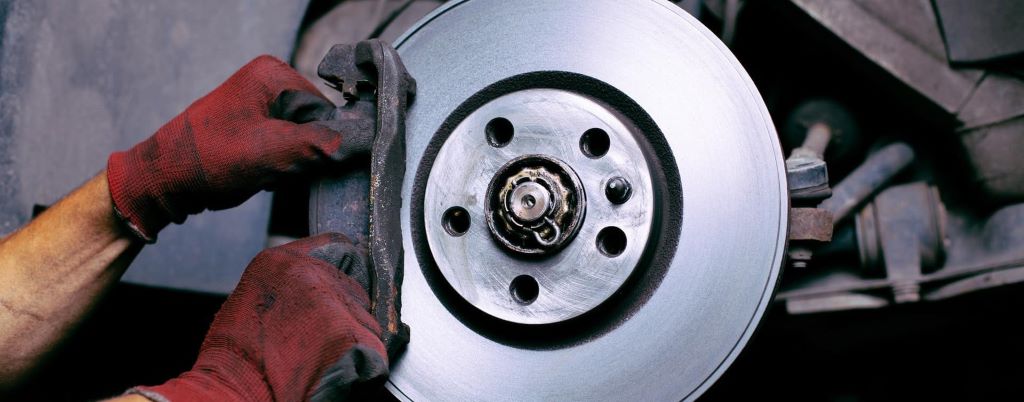
1. Worn-out Brake Pads
Worn-out brake pads are one of the reasons for making a grinding noise when braking. If your brake pads are used for quite a long time, the backing plates will gradually lose their material.
This causes metal to touch other metal, resulting in squeaking noises. Besides, the rotor can also rub the caliper and scrape its metal surface. Thus, if you do not replace the pads immediately, your brakes will be severely broken.
Moreover, the backing plate and the caliper will destroy each other, causing grooves and damage.
2. Low-Quality Brake Pads
Many people think buying low-quality pads is a good way to save some bucks. But actually, it’s a wrong decision. The poor-quality brake pads often contain metal chunks, which will rub and scrape on the surface of the rotor, causing heavy damage.
So if you are planning to replace the pads, choose good products from a renowned brand.
3. Solid Objects Between Rotor And Caliper
It’s normal for car components to catch dirt, dust, and grime. However, sometimes small rocks or other solid objects from the road can get between the caliper and rotor and create brakes grinding noise whether you push the brake or not.
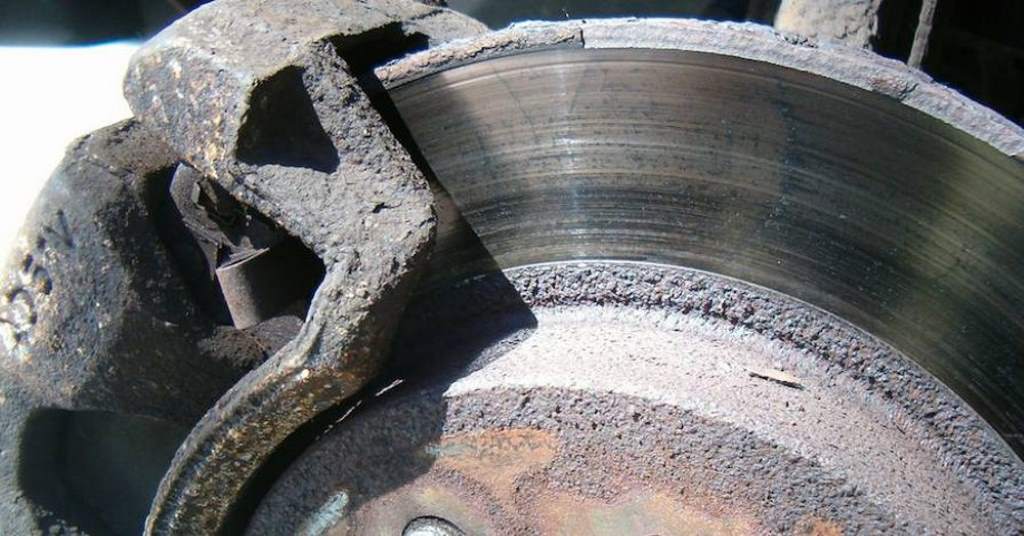
>> See more: Just Have Had a Brake Failure? Follow these Steps!
4. Broken Shims
Another reason responsible for the grinding noise when braking is broken shims. A worn-out shim will make contact with a piece of the braking system, such as the rotor. When metal comes together with other metal like this, they will create a grinding sound from your braking system.
So anytime you get a brake job done, you must replace the shims. Sometimes, your mechanic may avoid this as they want to do their job rapidly, so make sure that they do replace them for you.
5. Not Driving The Car Often
Rarely driving your car is another reason your car is making brakes scraping sound. Brake pads have an average lifespan of 20,000 miles. Nonetheless, they may not last that much longer for some reasons.
One probable cause is leaving the automobile in your garage for weeks. During these neglected times, idleness and bad weather can cause the forming of rust and corrosion on the rotors.
In that case, the rust can spread to other parts and generally destroy them. So in the end, you should drive the car regularly, at least for a while, to avoid this problem.
6. Worn-out Rotor Discs
Worn-out rotor discs are a possible culprit creating annoying noises from the braking system. Rotor discs that aren’t flat will cause squeaking sounds. Rotor discs that are too worn-out will create scraping sounds instead.
Moreover, worn-out rotors will cause a lot of vibrations from the braking system. These vibrations come in irregular forms and you can easily feel them through the brake pedal. This case is less popular than the first one.
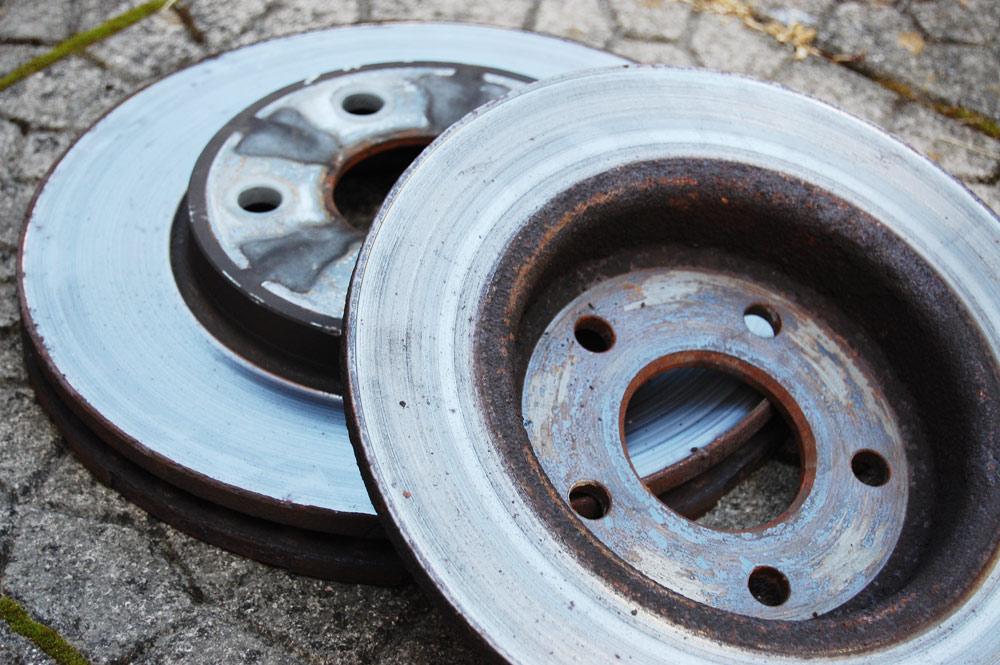
7. Faulty Wheel Bearing
If you hear the grinding noises from your wheels or observe vibrations which alternate from quiet to loud, then you may have a worn-out or damaged wheel bearing. So check the wheel bearings carefully and replace them if needed to get rid of annoying sounds.
8. Unlubricated Caliper Bolts
Caliper bolts will make grinding sound when braking if they lack lubrication. This case rarely occurs, but it could. An auto mechanic will automatically replace new caliper bolts for you during his repair work.
Frequently Asked Questions About Brakes Grinding Issue
1. Are grinding noises from braking systems dangerous?
Your brakes are one of the most important safety parts in your vehicle. So if you notice any warning signs like squeaky or brakes grinding while driving, it’s time to get a pro to check your vehicle or else your safety will be in danger.
2. How much does it cost to have your broken brakes and rotors replaced?
A brake repair job for one wheel including new calipers, pad replacement, new rotors and labor can cost you from $300 to $800 depending on your car model and other factors.
If all of these parts need to be replaced, the fee can easily expand to $1000+. The average cost is around $500.
How to stop your brakes from Squeaking? Check out the video below from ChrisFix to get more notices and tips to deal with this issue.
3. Why are my brakes grinding after new pads and rotors?
Even if the pads or rotors are replaced, debris might become entangled during the repair procedure. As you continue to drive your automobile, this should go away.
If you only replace the brake pads and not the rotors, the grinding noise may be caused by worn-out rotors.
4. Can brake fluid cause grinding noise?
When your braking fluid is filthy or depleted, it is unable to effectively compress your brake pads. This might result in uneven wear or even damage to your brake pads, resulting in grinding, squealing, or squeaking noises when you use the brakes.
5. Does ABS make grinding noise?
The ABS controller may produce a grinding or buzzing sound. A minor vibration may be felt in certain automobiles.
When you hear noises or feel pulsations, maintain your foot on the brake pedal. Continue to put strong pressure to the brake pedal rather than removing your foot from it.
Did you enjoy our article about grinding noise when braking today? If you have any question related to this topic or any car maintenance tips, feel free to leave it in the comment section, then we will answer it for you!







